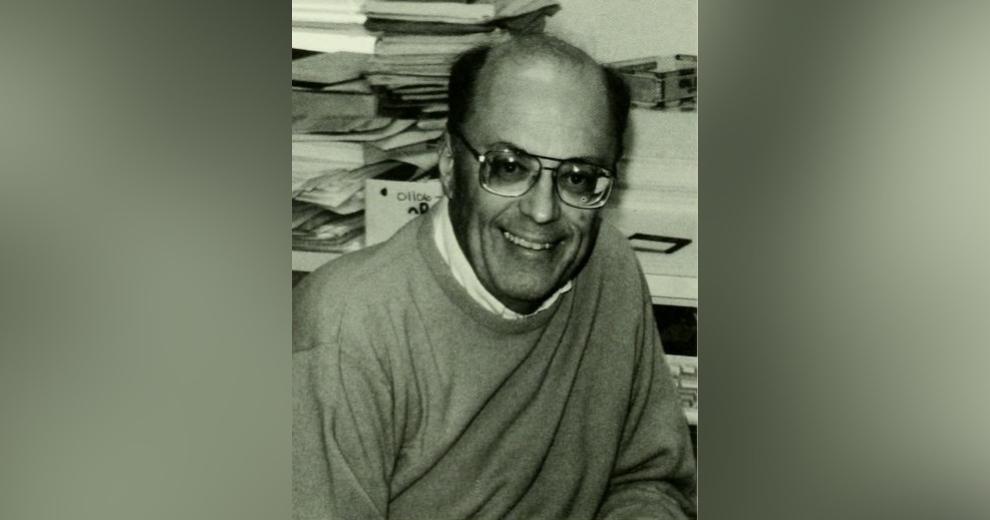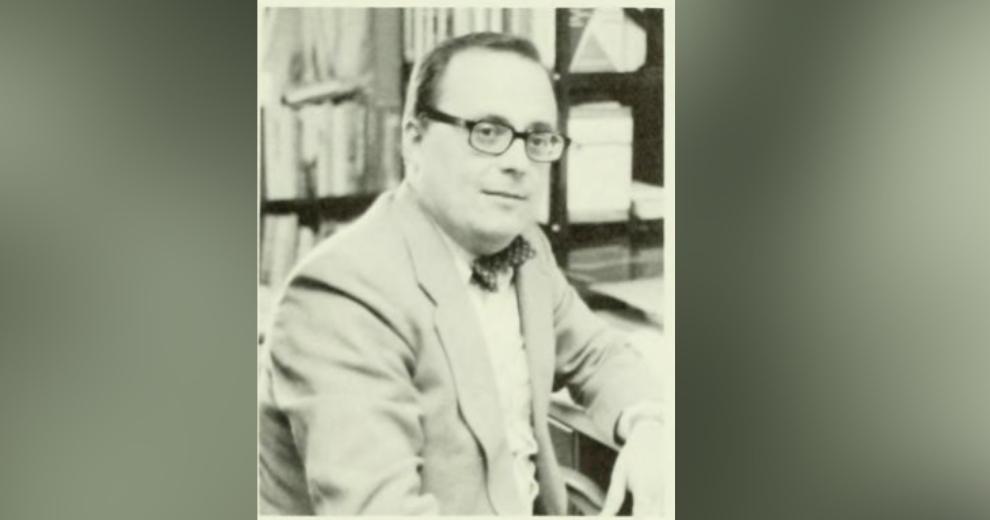Retired Mary Baldwin professor Dr. Kenneth “Ken” W. Keller loved American history — and devoted 30 years of his life to sharing that passion with students at MBU. He passed away at the age of 78 on January 9, 2022, at the University of Virginia Hospital in Charlottesville.
“Ken was a consummate colleague, dedicated teacher, and influential scholar,” said university President Pamela Fox. “I hold him in the pantheon of dedicated citizens to Mary Baldwin. He will be sorely missed.”
Keller served as marshal for Fox’s 2004 inauguration ceremony and the two formed a close bond soon thereafter. He’d been teaching history at the university since 1981 and was married to English professor Susan Blair Green. He chaired the history department and was a fierce champion of the Phi Beta Kappa Society at MBU. Keller’s gregarious personality, encyclopedic knowledge of American history, seemingly inexhaustible love of learning, and unflagging commitment to Mary Baldwin’s betterment made him a campus pillar.
“I came to deeply value Ken’s advice, and sought it on all important matters of policy and innovation,” said Fox. Even when responses presented “more questions than solutions, he delivered [them] in a warm voice, and always concluded with his distinctive smile.”

Keller arrived at Mary Baldwin highly recommended. He’d earned a PhD in American colonial history from Yale University, published dozens of scholarly articles, and logged 11 years of pedagogical experience at Ohio University and Ohio State University. The opportunity to teach smaller, more intimate classes that focused on student interaction lured him to the Virginia mountains.
“Ken told me on our first date, ‘The only thing I ever wanted to do was teach American history,’” said Green. It didn’t take long to understand, “Teaching was truly his calling.”
Colleagues and students agree: Keller had a gift for bringing the past to life in riveting detail. To do it he used comedy, great storytelling, sing-alongs, surprise show-and-tell sessions with historical artifacts, trips to museums, and more. His specialty courses about women in colonial America, Lewis and Clark, the West, and the indigenous peoples of North America won him a legendary reputation.
“It was obvious [Dr. Keller] loved being in the classroom, that he had a genuine passion for the material,” said Sarah Brooke Malloy ’99, who majored in history at MBU and is now a museum curator. The enthusiasm was infectious: “It made you excited to come to class and excited to learn. Frankly, it’s hard to imagine Mary Baldwin without him.”
Malloy worked closely with history professor Mary-Hill Cole to create an honorary book fund for Grafton Library when Keller retired in 2011. The fund commemorated Keller’s interest in Native American history by boosting coverage in the stacks.

Dr. Keller poses for MBU’s Bluestocking yearbook in 1982.
“Students, storytelling, and books were at the heart of Dr. Keller’s world as a historian,” said Cole, a renowned expert of Elizabethan England and colleague of 24 years. His office was lined with crammed, floor-to-ceiling bookshelves, which were themselves lined with tall piles of volumes. But that was just the tip of the iceberg: The entire second story of his home was also devoted to books.
Dr. Keller’s intellectual curiosity was insatiable, Cole continued. His love of learning was voracious, and it stayed with him throughout his life.
But Keller equally loved sharing his discoveries with others. At MBU that inspired him to develop innovative new courses — such as an interdisciplinary seminar with the philosophy and religious studies departments that explored the history of religion in the United States. He later spearheaded development around a $700,000 U.S. Department of Education grant that, among other things, created a position for professor Amy Tillerson-Brown, an expert in African American history.
Keller also worked to make history more accessible to the public. His interest in the migration of the Scotch-Irish across the Atlantic to Virginia’s Blue Ridge Mountain region, for instance, brought more than publications in distinguished scholarly journals: It led to the curation of related exhibits in Winchester’s Museum of the Shenandoah Valley. The experience in turn birthed a consulting relationship with the Association for Living History Farms and Museums.
Outside of academia, Keller was an avid gardener and traveler, and an adoring stepfather. He spent summers with his wife roaming the U.S., visiting sites of historical and botanical interest.
“Dr. Keller was much loved as a gentle, kind, and generous man, and will be deeply mourned by those who knew him best,” said Green.
Above all, Cole said, “I will miss the intelligence of his conversation and the sound of his big laugh echoing down the halls of Mary Baldwin.”
“Dr. Keller was a consummate colleague, dedicated teacher, and influential scholar. I hold him in the pantheon of dedicated citizens to Mary Baldwin.”
MBU President Pamela Fox